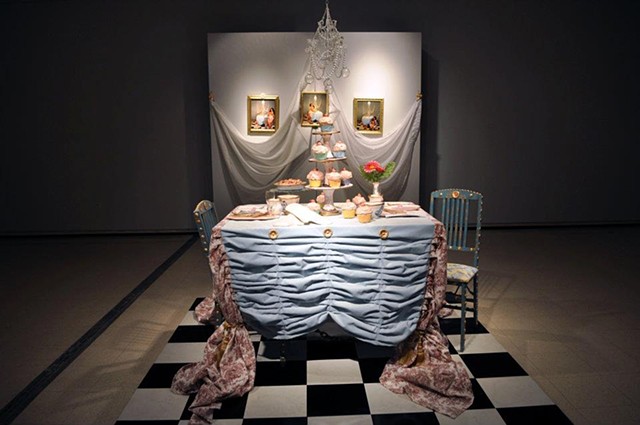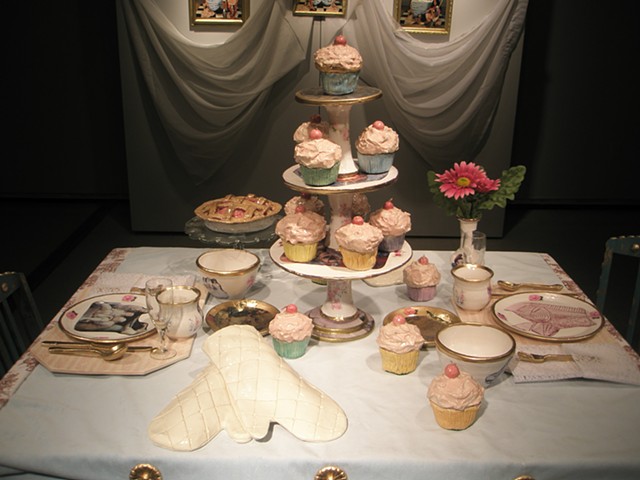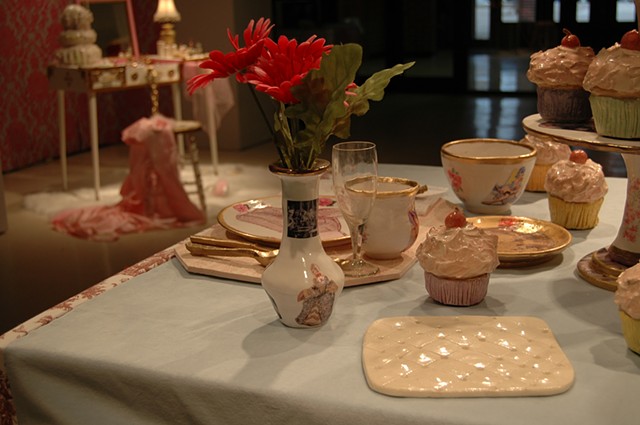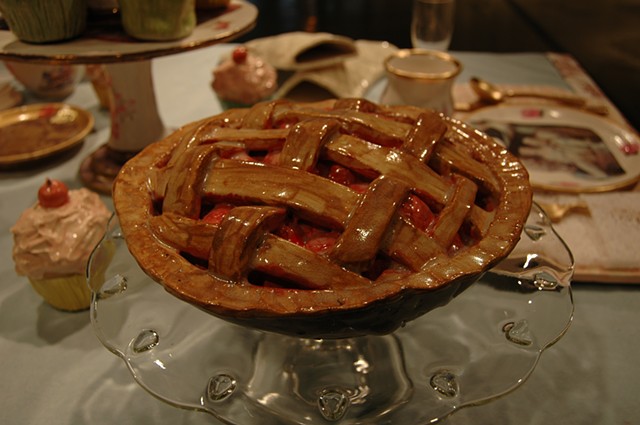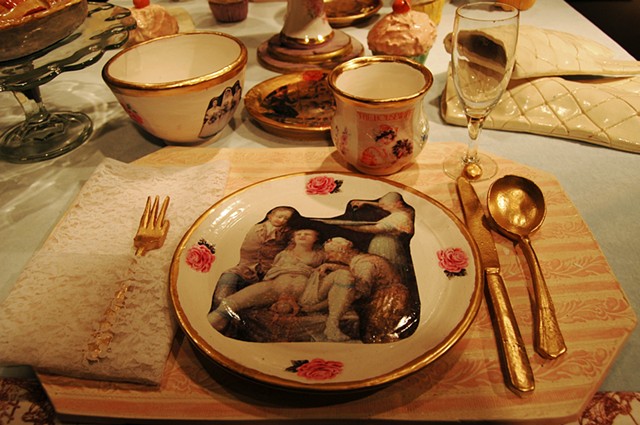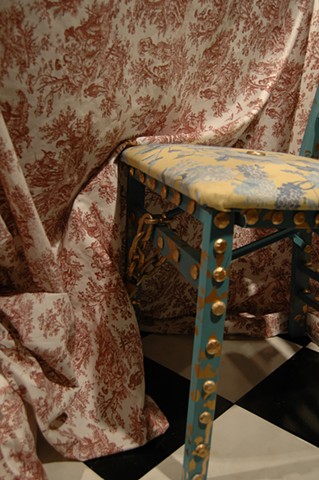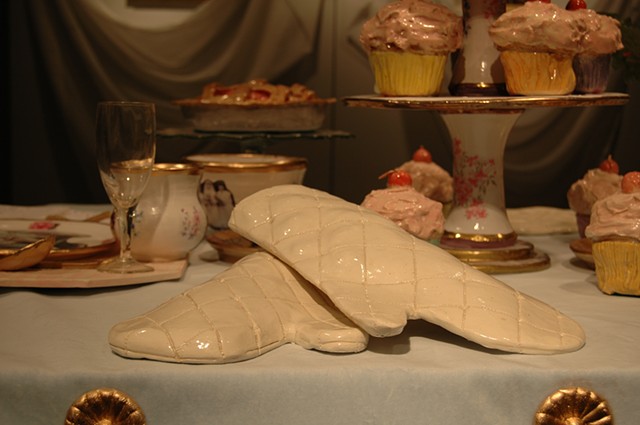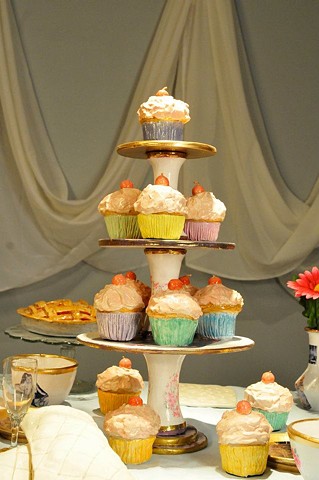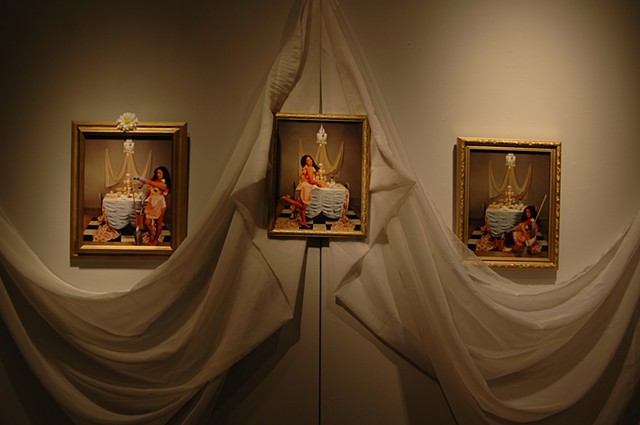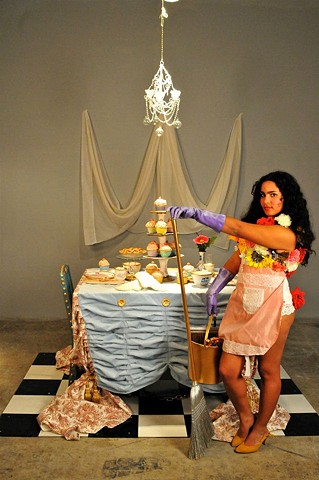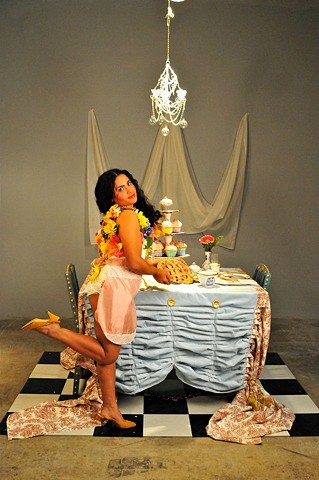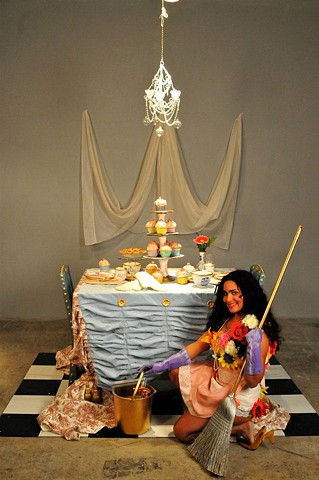"If I knew you were coming I'd have baked a cake"
The title "If I knew you were coming I’d have baked a cake" came from a 1950s Ethel Merman song. In the song, an unexpected guest comes to visit and the housewife drops all she is doing to accommodate him, slowly raising the stakes from baking a cake, to cooking a goose, to hiring a band for his return. Just as the song suggests, the photos portray an outrageous representation of the role of the accommodating housewife. As the viewers approached the back wall they saw that the photos hung haloed in cloth, in a place of reverence above the table. This demonstrated how society raises the ideal woman to a place of status . The housewife in the framed photos was the same woman as in the vanity scene. In the photos on the left and the right she cleaned in impractical garb. She also had a smile affixed on her face, similar to ads of housewives in the 1950s, as if she received pleasure from cleaning the floor.
The pose given the place of status in the middle photo differed as it was a sexual innuendo. Unlike the other poses, which contained full smiles, the woman smirked and looked annoyed as if indicating better things she could be doing. This ideal woman utilized visual puns by presenting a pie to the audience, pie being a slang term for a woman’s vagina. By presenting a pie, she offered food, but also herself, to the viewer. Contrary to the sincere women portrayed on the dinnerware, this woman was a parody of the perfect housewife, overtly sexy and made up, while maintaining a good home. Was there more she aspired to or, was she maintaining a façade of what society expected; the perfect wife, homemaker, and sexual object?
The artifacts in the installation also added to the humor and fantasy. The chain under the table played on the old saying, the ball and chain, locking the chairs together so that one person cannot get up from the table without trapping the other person. Though the scene between two people at the table would resemble a slapstick comedy routine, it drew attention to the darker issue of gender roles and balance of power in marriage. The faux items added a sense of fantasy and humor to the piece. The food looked good enough to eat, but it was not edible, the silverware was not real, and one could not use the dishes. With these additional faux items, presented as real, the pieces drew attention to the middle class desire to move up in the world and to preserve appearances. They also commented on society’s expectation that the woman to maintain appearances and become the ideal.
